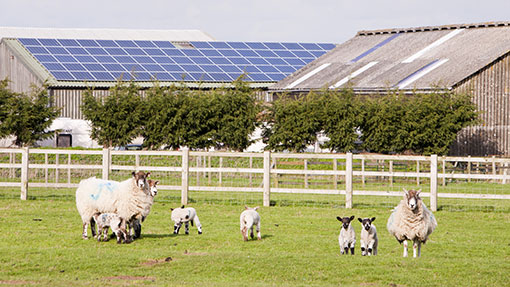Farmers could benefit from government solar plans

Rooftop solar PV could be given a boost by government plans to increase the size of projects that do not need to go through a full planning process.
Under the Department for Environment and Climate Change’s (Decc) Solar Strategy, permitted development rights could be extended to non-domestic rooftop solar PV schemes of up to 1MW. The proposal is contained in a public consultation by the Department for Communities and Local Government (DCLG).
Currently, full planning permission is not needed for schemes of up to 50kW, but the plans could help unlock further cheap energy for farmers with commercial buildings.
Installations on average-sized farm barns tended to be about 50kW, said the Farm Energy Centre, so the changes could allow farmers to more easily and cheaply install larger projects across a number of buildings.
See also: Growth opportunities for farmers as solar up 60%
This could be particularly advantageous to farms with high-energy usage, including poultry units and dairy farms.
Rooftop solar schemes of 250kW-1MW could be cost-effective, required less support than many centralised technologies and were efficient at providing daytime power at the point of use, said the Solar Trade Association (STA).
However, is said there was frustration that strong political rhetoric in support of large rooftop solar projects was not matched by the policy framework. Just 65MW of rooftop solar PV schemes between 50kW and 5MW were built in the year to June 2014.
Excessive Decc restrictions on large rooftop solar PV projects was creating high levels of uncertainty and concern across the industry, said the STA, while rapid digression of Feed-in Tariffs was also a consideration for those wishing to install the technology.
“The very poor levels of large rooftop deployment show that much more needs to be done to put the promised ‘rocket boosters’ under this market,” said STA chief executive Paul Barwell.
Responses to the consultation must be submitted by 26 September 2014. More details of how to respond can be found on page six of the consultation paper .
